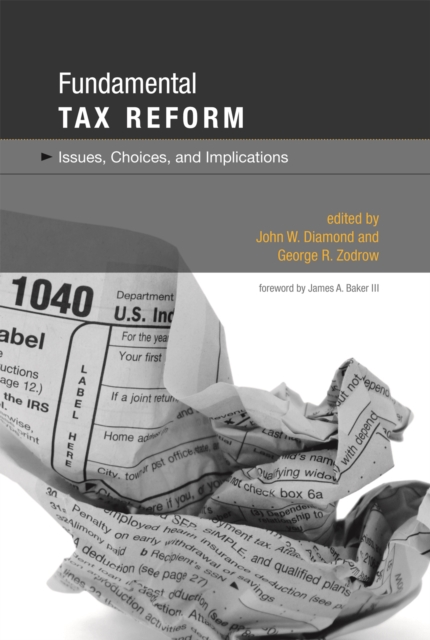
Fundamental Tax Reform : Issues, Choices, and Implications PDF
Edited by John W. Diamond, George R. Zodrow
Part of the The MIT Press series
Description
Leading experts on tax policy examine the complex issues involved in fundamental tax reform, including the relative merits of income-based and consumption-based taxation.
Reform of the federal income tax system has become a perennial item on the domestic policy agenda of the United States, although there is considerable uncertainty over specifics. Indeed the recent report of the President's Advisory Panel on Federal Tax Reform recommended not one but two divergent policy directions (and included extensive discussion of a third).
In Fundamental Tax Reform, top experts in tax policy discuss a wide range of issues raised by the prospect of significant tax reform, identifying the most critical questions and considering whether the answers are known, unknown-or unknowable. The debates over tax reform usually concern the advantages and disadvantages of income-based taxation as opposed to any of the several alternative forms of consumption-based taxation. The book opens with chapters that discuss the strengths, weaknesses, and political feasibility of these options. Other chapters consider the effect of tax reform on businesses, especially their investment behavior, and include a discussion of possible problems in any transition to a consumption-based tax; international taxation issues arising in an era of globalization; and individual behavioral response to tax reform, including a view of the topic from the perspective of the relatively new field of behavioral economics.
Contributors
Rosanne Altshuler, Alan J. Auerbach, John W. Diamond, Harry Grubert, Arnold C. Harberger, Kevin A. Hassett, Thomas J. Kniesner, Laurence J. Kotlikoff, Edward J. McCaffery, Kathryn Newmark, David Rapson, Daniel Shaviro, Joel Slemrod, James P. Ziliak, George R. Zodrow
Discussants
James Alm, Henry J. Aaron, Charles L. Ballard, Leonard E. Burman, Robert S. Chirinko, Robert D. Dietz, Malcolm Gillis, Roger H. Gordon, Jane G. Gravelle, Timothy S. Gunning, James M. Poterba, Thomas S. Neubig, Alan Viard, George Yin
Information
-
Download - Immediately Available
- Format:PDF
- Pages:568 pages
- Publisher:The MIT Press
- Publication Date:11/04/2008
- Category:
- ISBN:9780262271707
Information
-
Download - Immediately Available
- Format:PDF
- Pages:568 pages
- Publisher:The MIT Press
- Publication Date:11/04/2008
- Category:
- ISBN:9780262271707










